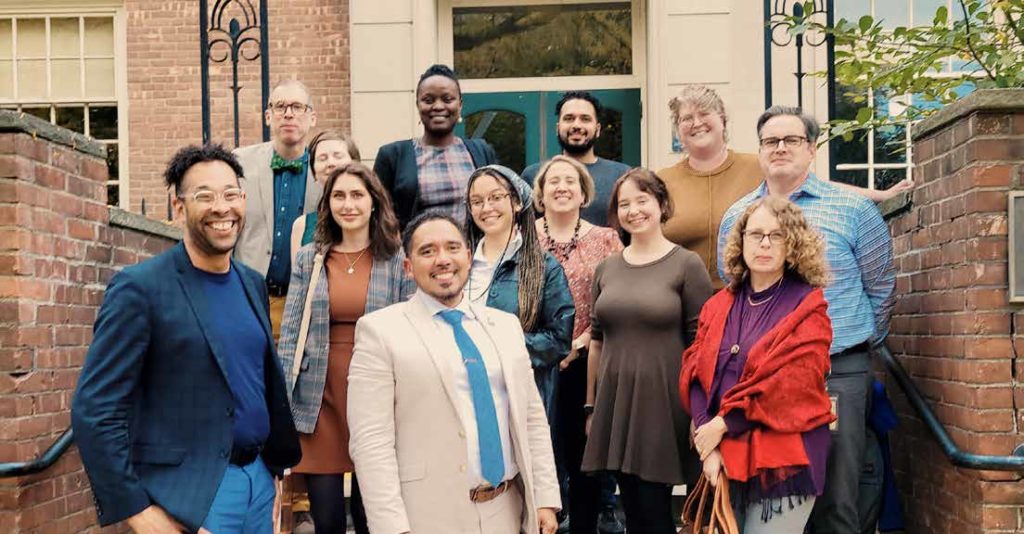Growing our leadership on inclusive teaching and scholarship in relation to Equity, Inclusion and Diversity.
Increasing access and success for under-represented and marginalized populations
Continuously build upon a campus climate
where everyone feels welcome, supported, included, and valued.
Attract, recruit, support and develop a diverse community inclusive of all students faculty, and staff.
Develop an institutional infrastructure to drive change.
2022– 2023 Diversity, Equity, and Inclusion Strategic Plan
Progress Report Year 1 of 3
For details on goals, strategies, and results for priorities 1 through 5, click the button below to view the final report.
A Note from Geoff Miller, Director of Diversity, Equity, and Inclusion
Currently, diversity, equity, and inclusion (DEI) is a term that has gained more attention and urgency in recent years due to increased awareness of systemic biases and discrimination faced by marginalized communities.
Many organizations and institutions have implemented DEI initiatives to address these issues and promote diversity, equity, and inclusion. At Russell Sage College, DEI refers to the principles of promoting diversity, ensuring equity, and creating an inclusive environment in many aspects of life at Sage, such as in the classrooms and libraries, in the dorms, on the fields, through the offices, and in social settings. Our vision is one that embraces diversity, equity, and inclusion as essential components of a rich intellectual and cultural environment in which all members are given the opportunity to reach their full potential as active participants in our local and global society.
The good progress and work reported in this document you are about to experience comes on the shoulders of our previous director Barbara Cockfield. In her tenure, Barbara was able to mobilize the Sage community and develop a strategic plan that carefully detailed the steps necessary to help Sage be a place for all people. All year long, the DEI Coalition worked to implement the first year of our 3-year strategic plan. It is with great pleasure that I share the accomplishments of the plan with you.
DEI can still be polarizing in 2023, as some individuals and groups may perceive it as an attack on their beliefs or a form of discrimination. We at Russell Sage College understand that there may be disagreements on the best approaches to achieve DEI, but we are committed to creating brave spaces built on respect which will allow differences to be valued while promoting a more just and equitable world.
In Unity,
Geoff Miller
he/him
Director of Diversity, Equity, and Inclusion

The Coalition will…

2023-2024 DEI Coalition Members and Faculty Liaisons
RSC DEI Vision Statement
Russell Sage College embraces diversity, equity, and inclusion as essential components of a rich intellectual and cultural environment in which all members are given the opportunity to reach their full potential as active participants in our local and global society. We realize that the work of diversity, equity, and inclusion is an evolution that moves us towards our aspirations of a culturally inclusive community. The understanding we gain, as we continually assess our institution, will create informed and intentional transformation.
Russell Sage College is committed to developing policies and programs to create a campus that supports an optimal learning and working environment for all students, alumnae/i, faculty, administrators, and staff.


